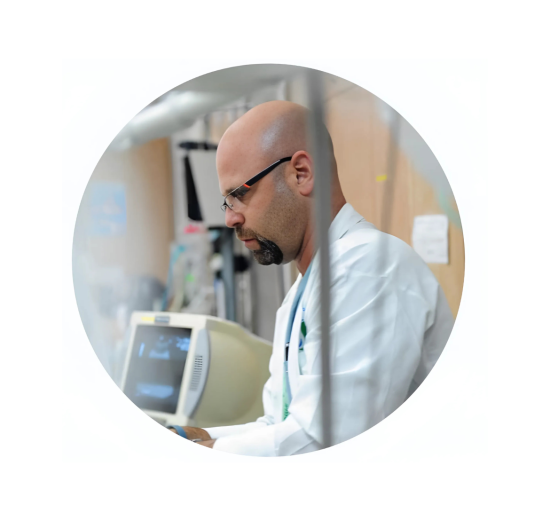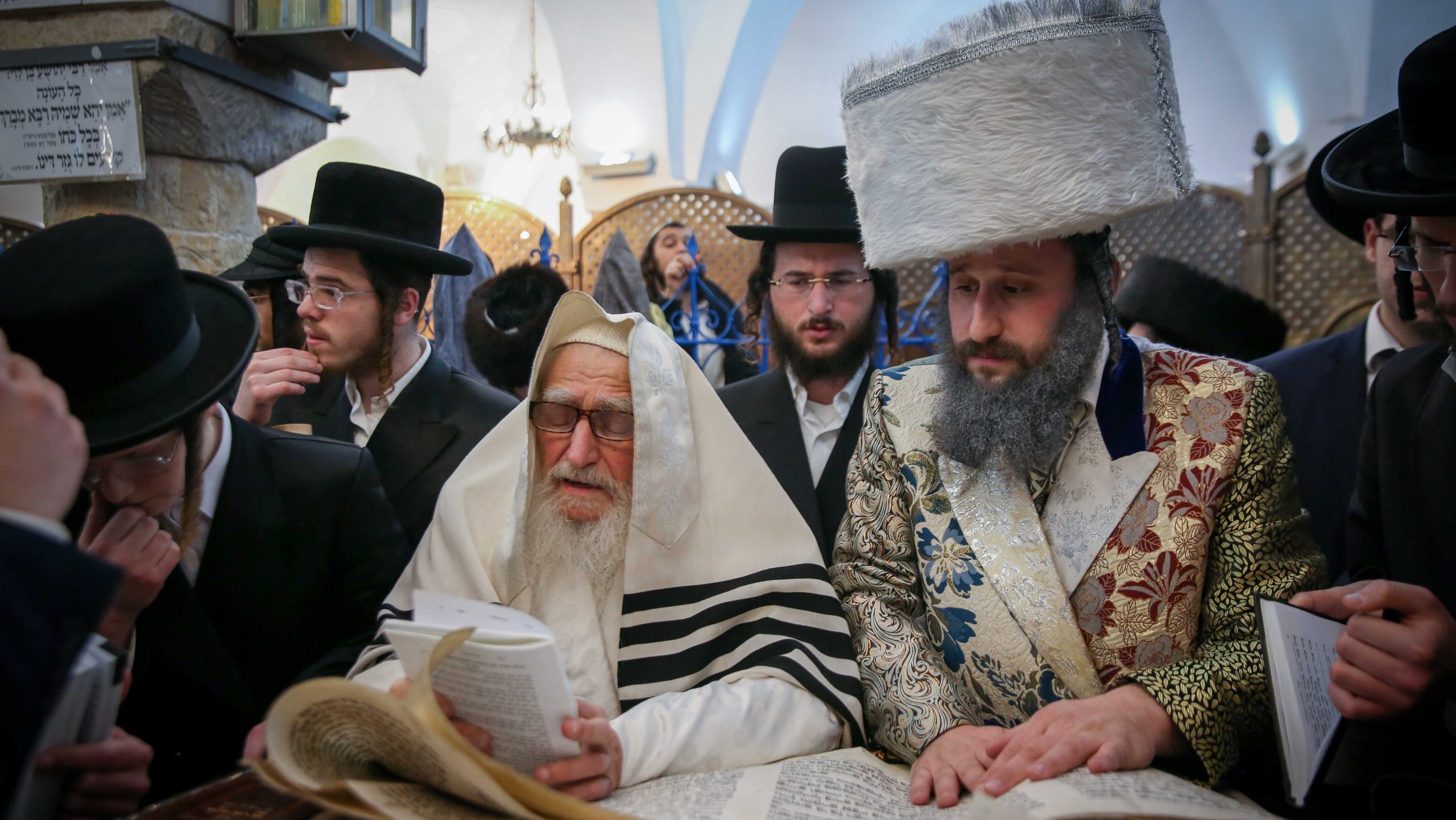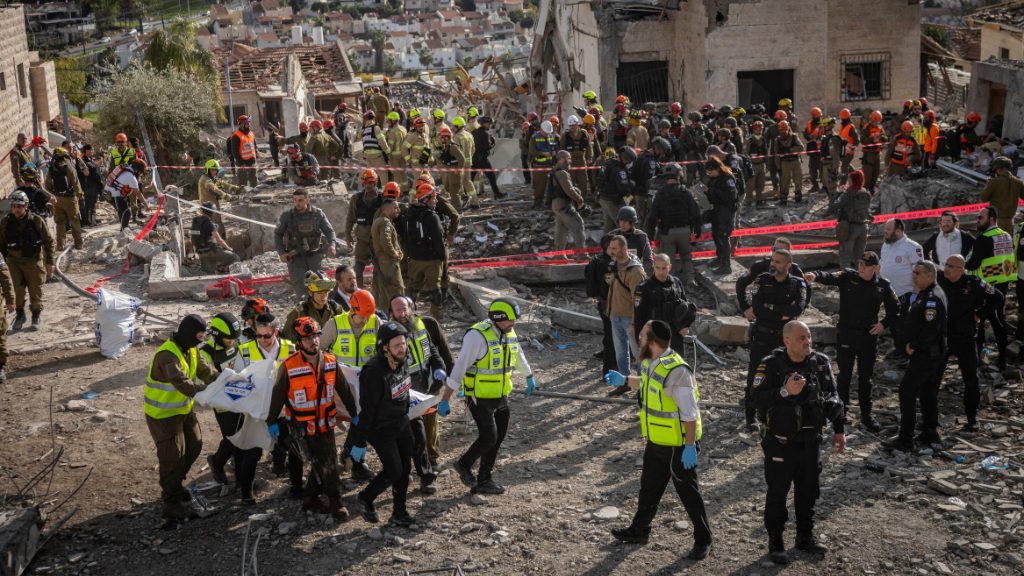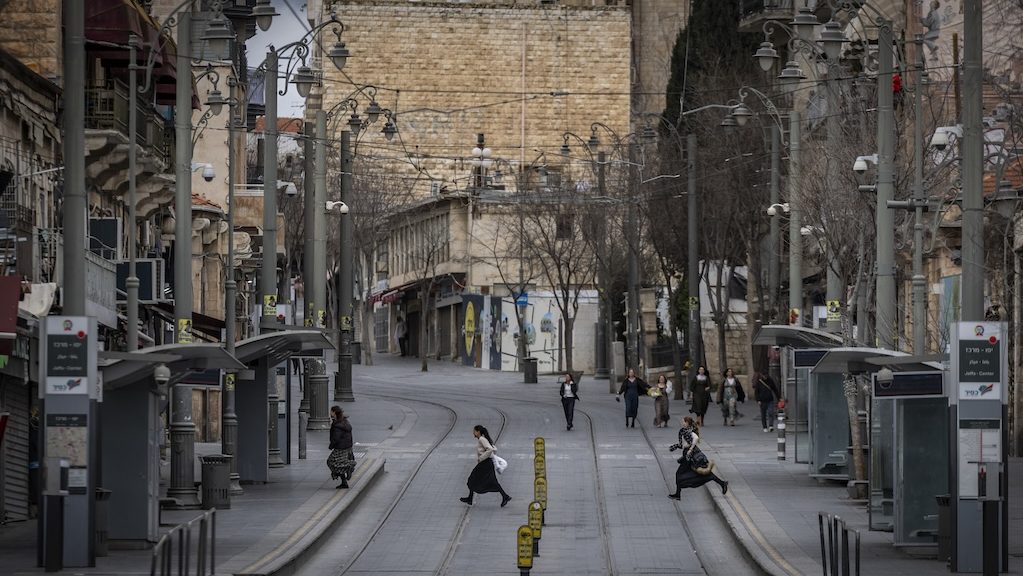Dr. Amit Frenkel and His Team Treated a Record Number of Casualties on October 7, 2023
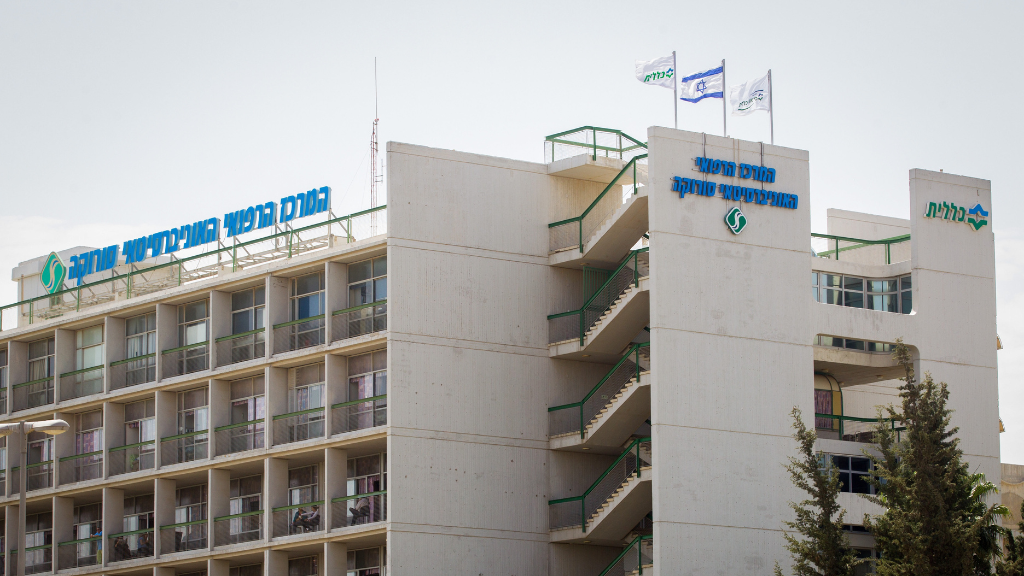 View of the Soroka hospital in the southern Israeli city of Beersheba | Photo: Miriam Alster/FLASH90
View of the Soroka hospital in the southern Israeli city of Beersheba | Photo: Miriam Alster/FLASH90
Dr. Amit Frenkel is the head of emergency services at Soroka Medical Center in Be’er Sheva. On October 7, 2023, he and his team treated more than 670 casualties in a single day – an unprecedented number. Later, that same hospital was struck by an Iranian ballistic missile. Dr. Frenkel recently traveled to the Netherlands to share his professional experiences, but no academic hospital offered him a platform to speak.
Soroka Medical Center is the only academic hospital in southern Israel, responsible for the region stretching from Ashkelon to Eilat. ‘We care for about a million people. It’s a very large hospital, with some 5,500 employees. We are a level-one trauma center, meaning we have every facility and treatment needed for comprehensive medical care. There is no other hospital in the region.’
A unique decision
When Dr. Frenkel woke to the sound of sirens and explosions on October 7, he was not alarmed at first. ‘In southern Israel, it’s not uncommon. Skirmishes happen from time to time, and we always hope they’ll be over the next day.’ But when the attacks intensified, he went to the hospital. ‘There, we made a unique decision. When I arrived, no injured people had yet been brought in. But colleagues living near the Gaza border reported that this time was different – terrorists were attacking villages where our staff lived. So, without waiting for official instructions, we declared a mass-casualty event, even though no patients had arrived yet.’
‘That decision changed everything. Saturday mornings in Israel are usually very quiet, and the hospital runs with minimal staff. By declaring a state of emergency, we ensured that enough doctors and nurses were available to treat the wave of patients. By 9 a.m., two hundred medical staff were already standing by, even before the first wounded arrived. Within hours, the flow of casualties was overwhelming.’
670 wounded
It turned out to be the largest number of casualties ever treated by a single hospital in the Western world within 24 hours. ‘That day, we treated more than 670 wounded. At times, an injured person was brought in every minute – or faster. Nearly 50 children and just as many elderly people were among them. They had been shot in their own homes.’
A medical feat
Treating the wounded was further complicated by ongoing rocket fire from Gaza. ‘We couldn’t use all of our operating rooms because not all are rocket-proof. But with so many patients in need of surgery, we made another crucial decision: we converted the obstetrics and gynecology operating theaters, which are rocket-protected, into trauma ORs.’ Despite the chaos, Dr. Frenkel’s team never lost control. ‘Every patient who came in that day received the care they needed. Of course, we had to triage carefully, but no one was left untreated. That is what kept us going. The horror of that day will never fade, but we take comfort in knowing that together we achieved a medical feat beyond expectation. Soroka proved stronger than anyone imagined.’
Son
Meanwhile, Dr. Frenkel’s own son was serving in the army in southern Israel. He sent a message that morning saying he was safe, but then went silent. ‘All day I worked without knowing if my son was alive. But that was the reality for many of us – doctors, nurses, police, soldiers – whose families were serving. We had to keep saving lives despite the fear.’ Late that night, his son finally called to say he was unharmed.
An Iranian ballistic missile
A year and a half later, on June 19, 2025, Soroka faced another emergency. That morning, the hospital was struck by an Iranian ballistic missile. ‘We were very lucky. Just 48 hours earlier, the building that was hit was still full of patients and staff. Because of the missile threat, we had evacuated it. Thank God there were no casualties. Still, many buildings sustained damage, which continues to limit our capacity.’
Disappointed
Dr. Frenkel says he cannot understand why academic hospitals in the Netherlands refused to host him. ‘I came as a doctor, to share the medical and academic story of our hospital. That should not be political. I was surprised and disappointed.’ He stresses that Soroka itself is not guided by politics: ‘We treat Arabs, Bedouins, Jews, and Gazans alike. Soroka cares for a multicultural population, and our staff is equally diverse. When we put on our uniforms, religion or background no longer matter. We are one family, caring for anyone in need.’
Dialogue
That is why he regrets being denied the chance to speak at Dutch universities. ‘Dialogue is the only way we can truly understand one another.’
Why Israel? by Rev. Willem Glashouwer
Order the book
